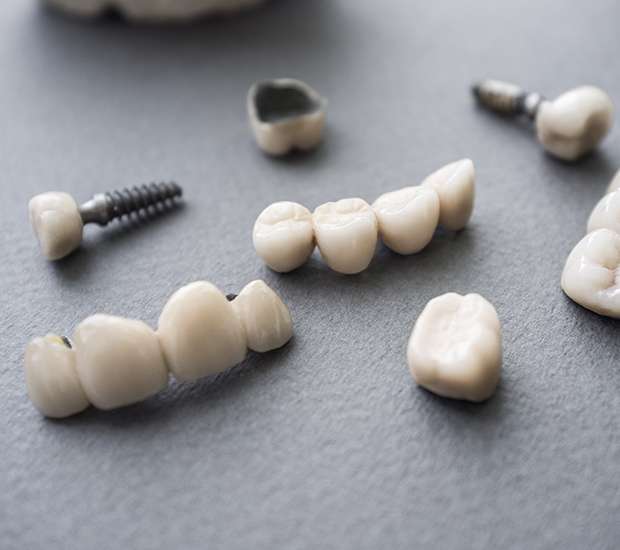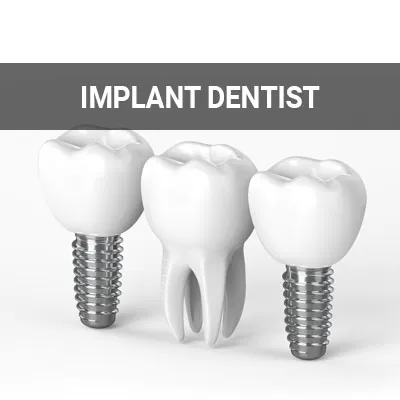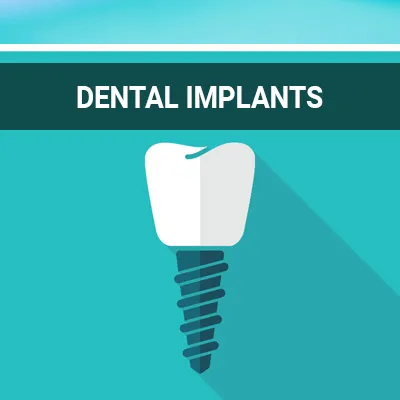The Difference Between Dental Implants and Mini Dental Implants Roseville, CA
If you have lost one or more teeth, you can have full dental functions by choosing dental implants. With implant restoration, the dentist will offer you regular implants or mini dental implants. Mini dental implants are smaller than conventional implants and do not require as much healthy bone tissue for placement. It is a good alternative for patients who do not want or cannot undergo a bone graft procedure.
Mini dental implants are available at Fountains Dental Excellence in Roseville and the surrounding area. They are a reliable option for patients who may be hesitant about the invasive process of regular implants or do not have enough bone mass in their jaws to support them. Call our office at (916) 839-3035 to schedule an appointment with Fountains Dental Excellence for a consultation.
Understanding Mini Dental Implants
You can achieve a more attractive smile, address oral health concerns, and improve overall mouth function through teeth replacement with mini dental implants. Mini dental implants are a type of dental implant that is used to support dentures, bridges, or a crown. Implants and mini dental implants are available at Fountains Dental Excellence in Roseville and the surrounding area. You can learn more about mini dental implants and what steps are involved in the treatment process during your initial consultation.
The greatest difference between mini implants and traditional implants is size, giving them their name. In most cases, traditional dental implants are typically between 4 and 6 mm, whereas mini-implants range from 2 to 3 mm. Placing mini dental implants will also have differences from the traditional procedure. In many cases, the mini dental implant procedure is less invasive.
“In most cases, traditional dental implants are typically between 4 and 6 mm, whereas mini-implants range from 2 to 3 mm.”
Eligibility for Mini Dental Implants
When a tooth is lost, bone degeneration commences. If it takes too long before seeking restoration, the patient may have lost too much bone density to support a regular implant. Jawbone atrophy may also be a result of periodontitis (gum disease), teeth misalignment, or damage from a broken or knocked-out tooth. In this case, the dentist may recommend mini dental implants.
Additional cases where the dentist may suggest mini implants include:
- For front teeth restorations
- Premolar replacements
- Teeth positioned in a narrow gap
- For small teeth
- Where a person suffers from a chronic illness, has undergone radiation therapy or smokes heavily.
The only qualified professional that can determine which type of implant is right for you is an experienced implant dentist.
“If it takes too long before seeking restoration, the patient may have lost too much bone density to support a regular implant.”
Benefits of Mini Dental Implants
Understanding the benefits of each treatment option helps patients make an informed decision. The benefits of mini dental implants include the following:
- Less invasive procedure. For traditional dental implants, the procedure is much more invasive. In contrast, mini implants are easier for an oral surgeon to place and require less intensive treatment.
- No need for bone grafting. Mini dental implants are sometimes an option in instances where there is not enough bone density for traditional implants.
- Fewer complications. The risks of oral infection, implant failure, or longer recovery times are often less significant with mini dental implants.
- Comfortable and convenient. Mini implants look, feel, and function similar to a natural tooth.
“Mini dental implants are sometimes an option in instances where there is not enough bone density for traditional implants.”
Check out what others are saying about our dental services on Yelp: The Difference Between Dental Implants and Mini Dental Implants in Roseville, CA
Implants Can Prevent Tooth and Bone Loss
Implants, both traditional and mini, are of the greatest advancements in dentistry as they preserve the jawbone, do not decay, and function just like natural teeth. According to the American Dental Association (ADA), an implant is so strong because of osseointegration, the process in which surrounding bone actually grows around it and holds it in place. This allows for bone preservation and strengthening of the surrounding and underlying tissues. Preserving the teeth, jawbone, and tissue secures surrounding teeth to the bone underneath, preventing or reducing the likelihood of tooth loss.
Bone atrophy refers to the deterioration of the underlying jawbone. Dental implants prevent bone atrophy the same way natural roots do: by sending signals to the implant and surrounding bone. The implant acts as a stimulator to promote bone generation and keep them functioning properly. Both traditional and mini dental implants have this advantage and can prevent tooth and bone loss.
“Dental implants prevent bone atrophy the same way natural roots do: by sending signals to the implant and surrounding bone.”
Questions Answered on This Page
Q. When should I consider mini dental implants?
Q. What are the benefits of mini dental implants?
Q. How do dental implants prevent tooth and bone loss?
Q. What are eligibility requirements for mini dental implants?
Q. What is the placement procedure for mini dental implants?
People Also Ask
Q. Who is a good candidate for dental implants?
Q. How can I prepare for my first implant procedure?
Q. What happens after the procedure?
Q. How do dental implants compare to dentures?
Q. How do dentists determine whether a patient is a candidate for dental implants?
The Placement Procedure
The dentist can complete the placement of mini implants in one office visit without making incisions or sutures. On the other hand, regular implants involve two procedures. The first stage is intensive because the doctor must create a gap in the jawbone for implant posts. The second stage is more straightforward and entails revealing the implant posts to connect the abutment.
If the patient requires a sinus lift or bone graft, they will need to wait for some months for the jaw to heal before implant placement. After the implantation procedure, it will take another three to six months before the dentist can connect the final restoration.
With preliminary procedures out of the way, the treatment timeline for mini implants reduces remarkably. Sometimes, the patients may get a temporary dental prosthesis on the same day as the implant placement. Same-day restorations allow patients to get dental functions before the bones have healed fully.
“The dentist can complete the placement of mini implants in one office visit without making incisions or sutures.”
Frequently Asked Questions About Implants and Mini Implants
Q. Are there differences between implants and mini dental implants in terms of durability?
A. Dental implants are created from titanium, a biocompatible metal that fuses with the jawbone. Both options are highly durable, but their lifespan typically depends on the level of care provided. By brushing, flossing, and visiting the dentist regularly, you can keep your oral cavity and implants in excellent condition for a long time.
Q. Will mini dental implants be as strong as my natural teeth?
A. In most cases, mini implants have the same strength – if not more – than natural teeth. Mini implants provide full dental functionality and patients will be able to eat all their favorite meals. However, you need to be careful since implant restorations are just as vulnerable to damages as natural teeth.
Q. Is the placement procedure painful?
A. Many patients often register their surprise when they realize the convenience of the implant procedure. If you suffer from dental anxiety, you should talk to the dentist. They will discuss options to keep you as comfortable as possible throughout the procedure.
Q. How long does recovery take?
A. With mini dental implants, you can return to your routine almost immediately. The procedure is minimally invasive, which allows for fairly fast healing. In the first 24 hours after the procedure, you may need to take only soft foods and follow your dentist's instructions for a full recovery.
Dental Implant Terminology
Call Us Today
If you are interested in restoring your smile, call us at 916-839-3035 for more information about implants and mini dental implants. We are here to help you make the right decision about replacing missing or severely damaged teeth. Our friendly team is willing and able to answer any questions you have about the process.
Helpful Related Links
- American Dental Association (ADA). Glossary of Dental Clinical Terms. 2025
- American Academy of Cosmetic Dentistry® (AACD). Home Page. 2025
- WebMD. WebMD’s Oral Care Guide. 2025
About our business, license, and website security
- Fountains Dental Excellence was established in 2009.
- We accept the following payment methods: American Express, Cash, Check, Discover, MasterCard, and Visa
- We serve patients from the following counties: Placer County
- We serve patients from the following cities: Roseville, Loomis, Rocklin, Penryn, and Lincoln
- CA (License #103949). View License Information and Specifics
- National Provider Identifier Database (1457904773). View NPI Registry Information
- Norton Safe Web. View Details
- Trend Micro Site Safety Center. View Details
Back to top of The Difference Between Dental Implants and Mini Dental Implants
QR code for The Difference Between Dental Implants and Mini Dental Implants








